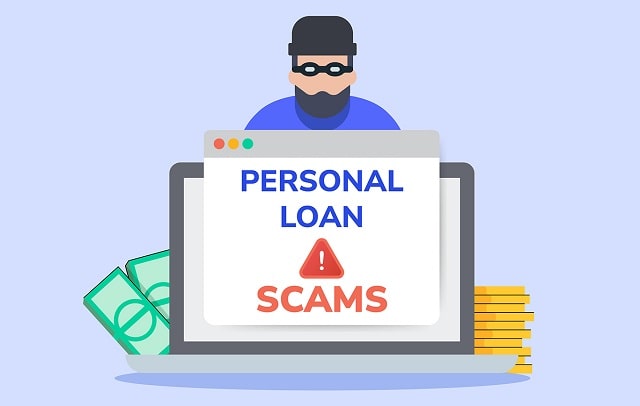
In today's digital world, getting a loan online is easier than ever. However, as the popularity of online lending has grown, so has the number of scams. Scammers are increasingly targeting people in need of money who are looking for quick and easy online loans. These scammers can be quite convincing and often prey on financially vulnerable people. Read on to learn how online loan scams work and some ways to avoid them.
How Do Online Loan Scams Work?
Many online loan scams involve promises of easy and fast money with no credit check or collateral required. These scams may start with unsolicited calls or emails offering loans with low interest rates or no upfront fees. Scammers often ask for personal and financial information, such as bank account details and credit card numbers. They may also ask for payment upfront before releasing the funds. Another common scam is to offer a loan but require the borrower to pay a fee to cover the cost of insurance or some other service.
Tips To Help You Avoid Online Loan Scams
To avoid falling victim to an online loan scam, there are several steps that you can take:
Check The Better Business Bureau
One of the first things you should do when considering a loan from an online lender is to check the Better Business Bureau (BBB). The BBB is a non-profit organization that collects and compiles consumer complaints and reviews of businesses. The BBB rating can give you a good idea of the lender’s reputation.
Look For Online Reviews
Another way to check the reputation of an online lender is to look for online reviews. There are a variety of websites that collect reviews of online lenders, like Trustpilot and Consumer Affairs. These sites allow other borrowers to rate and review the lenders they have used. Be sure to read plenty of reviews to get a well-rounded understanding of the lender.
Don't Pay Upfront Fees
Legitimate lenders will never ask you to pay an upfront fee. It is likely a scam if a lender asks for money before they lend you any money. Be wary of lenders who ask for a "processing fee", "application fee", or "insurance fee". These fees are often a way for scammers to collect money from borrowers without actually lending them any money.
Avoid Lenders With No Physical Address
Online lenders that don't have a physical address are a red flag. A legitimate lender will have a physical address where you can reach them if you need to. If a lender doesn't have a physical address, it is likely a scam.
Beware Of High-Pressure Tactics
Scammers often use high-pressure tactics to convince borrowers to take out a loan. They may pressure you to sign up quickly or tell you that the offer is only available for a limited time. Don't let anyone pressure you into taking out a loan. Take the time to review the offer carefully and make sure you understand the terms and conditions.
The Bottom Line On Online Loans
Online loan scams can be costly and devastating, leaving victims with stolen personal information, financial loss, and damaged credit scores. To avoid these scams, always do your research and check the lender's reputation with the Better Business Bureau or other consumer protection agencies. Be cautious of unsolicited offers and always carefully read the terms and conditions before agreeing to anything.
